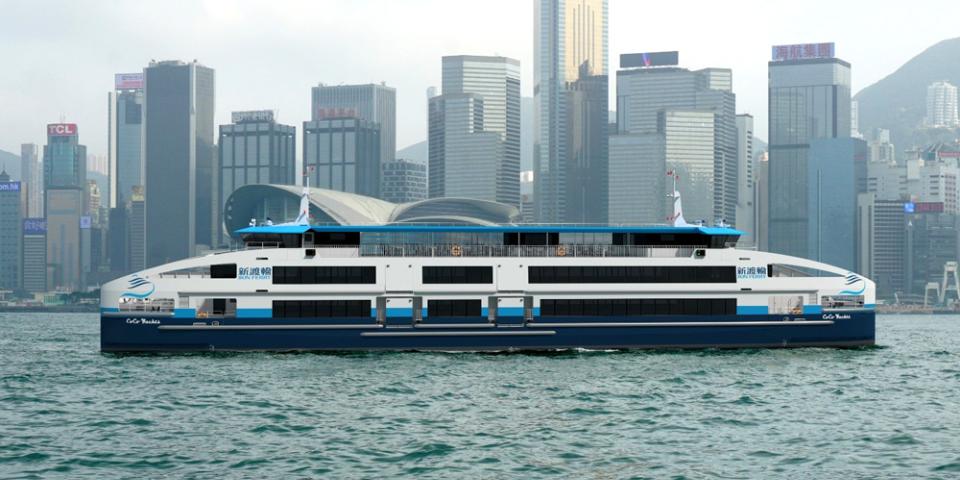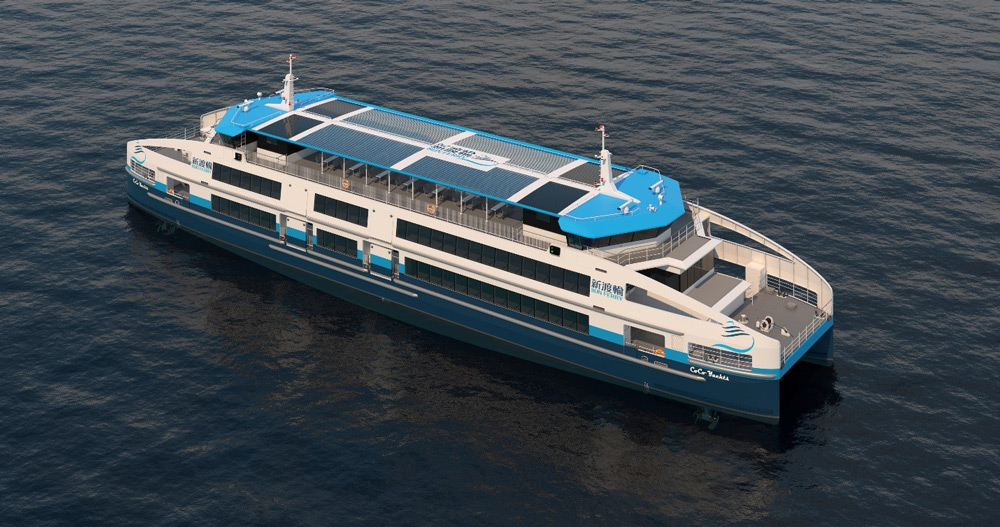Bureau Veritas (BV), a world leader in Testing, Inspection and Certification, has announced that it will class two hybrid double hull, double-end ferries, which will be equipped with battery and solar power technology for operation in Hong Kong.

Designed by CoCo Yachts, a Dutch naval architect design and development company, the Urban Sprinters 1000 vessels will be operated by Sun Ferry Services Company Limited. They will transport around 4 million passengers a year between Central Pier and Cheung Chau Pier, in Hong Kong domestic waters.
Both Urban Sprinter 1000 ferries will be built by YaGuang Technology Co. Ltd in Zhuhai, China, and will have an aluminium hull and superstructure. The first vessel will be built with hybrid diesel-electric propulsion and will be zero emission when sailing within pier boundaries as well as during berthing. The second vessel will be built with diesel-electric propulsion. Both ferries will have a battery pack for overnight energy to avoid diesel generators running.
Each vessel will be fitted with four IMO tier III diesel generators, of which three will typically be in service, and one will be on standby. The service speed will be 16 knots. The vessels will also be equipped with four Azimuth L-type thrusters, each fitted with a PM electric motor.

The third deck will be an open area accessible to passengers for sightseeing purposes. The area will be partly covered by solar panels, which will help to reduce the vessel’s overall emissions. The ships have been designed to offer luxurious and functional passenger accommodation on the main and upper deck, and minimise noise and vibration levels.
The design and building of the vessel will be surveyed and certified by Bureau Veritas. All flag related items, including safety and stability will be delegated from Hong Kong Marine Department to BV. Previous projects with similar delegated works have proven to be an efficient and reliable method.
The first Urban Sprinter 1000 hybrid is expected to be delivered in Q2 2024, while the second vessel will be delivered in Q1 2025.